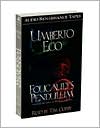Category Books
- Fiction Books & Literature
- Graphic Novels
- Horror
- Mystery & Crime
- Poetry
- Romance Books
- Science Fiction & Fantasy
- Thrillers
- Westerns
- Ages 0-2
- Ages 3-5
- Ages 6-8
- Ages 9-12
- Teens
- Children's Books
- African Americans
- Antiques & Collectibles
- Art, Architecture & Photography
- Bibles & Bible Studies
- Biography
- Business Books
- Christianity
- Computer Books & Technology Books
- Cookbooks, Food & Wine
- Crafts & Hobbies Books
- Education & Teaching
- Engineering
- Entertainment
- Foreign Languages
- Game Books
- Gay & Lesbian
- Health Books, Diet & Fitness Books
- History
- Home & Garden
- Humor Books
- Judaism & Judaica
- Law
- Medical Books
- New Age & Spirituality
- Nonfiction
- Parenting & Family
- Pets
- Philosophy
- Political Books & Current Events Books
- Psychology & Psychotherapy
- Reference
- Religion Books
- Science & Nature
- Self Improvement
- Sex & Relationships
- Social Sciences
- Sports & Adventure
- Study Guides & Test Prep
- Travel
- True Crime
- Weddings
- Women's Studies
Foucault's Pendulum (4 Cassettes) » (Abridged, 4 Cassettes)

Authors: Umberto Eco, Richard Stack, Theodore Bikel (Read by), Tim Curry
ISBN-13: 9781559273596, ISBN-10: 1559273593
Format: Audio
Publisher: Macmillan Audio
Date Published: October 1995
Edition: Abridged, 4 Cassettes
Author Biography: Umberto Eco
Few cultural critics and novelists carry the scholarly heft of Umberto Eco, who was a noted historian and semiotician before he brought these sensibilites to bear on major novels such as The Name of the Rose and Foucault's Pendulum. Whether he is deconstructing modern wax museums or spinning a 13th-century tale, he is always clever, stately and profound.
Book Synopsis
One Colonel Ardenti, who has unnaturally black, brilliantined hair, a carefully-groomed mustache, wears maroon socks, and who once served in the Foreign Legion, starts it all.He tells three Milan book editors that he has discovered a coded message about a Templar Plan, centuries old and involving Stonehenge -- a plan to tap a mystic source of power far greater than atomic energy.
The editors, who have spent altogether too much time rewriting crackpot manuscripts on the occult by fanatics and dilettantes, decide to have a little fun. They'll create a Plan of their own. But how?
Randomly they throw together manuscript pages on hermetic thought; The Masters of the World, who live beneath the earth, The Comte de Sain-Germain, who lives forever. They add Satanic initiation rites of the Knights of the Temple, Assassins, Rosicrucians, Brazilian voodoo, the Third Reich. And they feed all this, and much more, into their powerful computer, Abulafia.
A terrific joke, they think, until the Plan assumes and life and power of its own, and turns deadly -- as people mysteriously begin to disappear, one by one, starting with Colonel Ardenti.
Publishers Weekly
If a copy (often unread) of The Name of the Rose on the coffee table was a badge of intellectual superiority in 1983, Eco's second novel--also an intellectual blockbuster--should prove more accessible. This complex psychological thriller chronicles the development of a literary joke that plunges its perpetrators into deadly peril. The narrator, Casaubon, an expert on the medieval Knights Templars, and two editors working in a branch of a vanity press publishing house in Milan, are told about a purported coded message revealing a secret plan set in motion by the Knights Templars centuries ago when the society was forced underground. As a lark, the three decide to invent a history of the occult tying a variety of phenomena to the mysterious machinations of the Order. Feeding their inspirations into a computer, they become obsessed with their story, dreaming up links between the Templars and just about every occult manifestation throughout history, and predicting that culmination of the Templars' scheme to take over the world is close at hand. The plan becomes real to them--and eventually to the mysterious They, who want the information the trio has ``discovered.'' Dense, packed with meaning, often startlingly provocative, the novel is a mixture of metaphysical meditation, detective story, computer handbook, introduction to physics and philosophy, historical survey, mathematical puzzle, compendium of religious and cultural mythology, guide to the Torah (Hebrew, rather than Latin contributes to the puzzle here, but is restricted mainly to chapter headings), reference manual to the occult, the hermetic mysteries, the Rosicrucians, the Jesuits, the Freemasons-- ad infinitum . The narrative eventually becomes heavy with the accumulated weight of data and supposition, and overwrought with implication, and its climax may leave readers underwhelmed. Until that point, however, this is an intriguing cerebral exercise in which Eco slyly suggests that intellectual arrogance can come to no good end. (Oct.)
Table of Contents
Subjects
 Thrillers - Nail-Biters
Thrillers - Nail-BitersFiction Books & Literature
 Fiction Subjects
Fiction Subjects  Arts & Entertainment - Fiction
Arts & Entertainment - FictionFiction Books & Literature
 Fiction Subjects
Fiction Subjects  Religion & Beliefs - Fiction
Religion & Beliefs - Fiction
